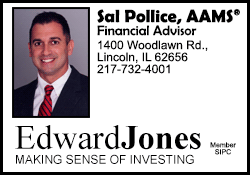|
 Israeli Prime Minister Benjamin Netanyahu pledged to respond with
a "heavy hand", and again accused Western-backed Palestinian
President Mahmoud Abbas of inciting violence in Jerusalem. Israeli Prime Minister Benjamin Netanyahu pledged to respond with
a "heavy hand", and again accused Western-backed Palestinian
President Mahmoud Abbas of inciting violence in Jerusalem.
Abbas condemned the attack, which comes after a month of unrest
fueled in part by a dispute over Jerusalem's holiest shrine.
A worshipper at the morning service in the Kehillat Bnei Torah
synagogue in an ultra-Orthodox neighborhood of West Jerusalem said
about 25 people were praying when shooting broke out.
"I looked up and saw someone shooting people at point-blank range.
Then someone came in with what looked like a butcher's knife and he
went wild," the witness, Yosef Posternak, told Israel Radio.
Photos distributed by Israeli authorities showed a man in a Jewish
prayer shawl lying dead, a bloodied butcher's cleaver on the floor,
several overturned prayer tables and prayer books covered in blood.
"We are viewing this as a terrorist attack," said police spokesman
Micky Rosenfeld, who confirmed the four dead and that the two
assailants, both from predominantly Arab East Jerusalem, had been
shot dead by police.
 Israel's ambulance service said at least eight people were seriously
wounded.
The Popular Front for the Liberation of Palestine (PFLP), said it
carried out the attack.
"We declare full responsibility of the PFLP for the execution of
this heroic operation conducted by our heroes this morning in
Jerusalem," said Hani Thawbta, a PFLP leader in Gaza.
Police identified one of the dead as Rabbi Moshe Twersky, who taught
at a Jerusalem seminary. Twersky was from a Hassidic rabbinical
dynasty and a grandson of Joseph Soloveitchik, a renowned Boston
rabbi who died in 1993.
In a statement, Abbas said: "The presidency condemns the attack on
Jewish worshippers in one of their places of prayer in West
Jerusalem and condemns the killing of civilians no matter who is
doing it."
U.S. Secretary of State John Kerry described the attack as an act of
"pure terror", and his spokeswoman said he phoned Netanyahu to offer
condolences.
"MARTYRS"
Palestinian radio described the attackers as "martyrs" and the
Islamist group Hamas praised the attack. Loudspeakers at mosques in
Gaza called out congratulations and youngsters handed out candy in
the streets.
Palestinian media named the attackers as Ghassan and Udai Abu Jamal,
cousins from the Jerusalem district of Jabal Mukaber, where clashes
broke out as Israeli security forces moved in to make arrests.
"Hamas calls for the continuation of revenge operations and stresses
that the Israeli occupation bears responsibility for tension in
Jerusalem," Hamas spokesman Sami Abu Zuhri said.
[to top of second column] |

The synagogue attack came a day after a Palestinian bus driver was
found hanged in his vehicle in Jerusalem. Israel said an autopsy
showed he committed suicide, but his family said he was attacked.
Hundreds of mourners at the driver's funeral on Sunday chanted for
revenge. Netanyahu said the synagogue attack was "a direct result
of incitement" led by Hamas and Abbas, "incitement that the
international community has been irresponsibly ignoring."
"We will respond with a heavy hand to the brutal murder of Jews who
came to pray and were killed by lowly murderers," said Netanyahu,
who summoned his security cabinet for a special session.
Violence in Jerusalem, areas of Israel and the Israeli-occupied
Palestinian territories has surged in the past month, fueled in part
by a dispute over Jerusalem's holiest shrine.
Five Israelis and a foreign visitor have been deliberately run over
and killed or stabbed to death by Palestinians. About a dozen
Palestinians have also been killed, including those accused of
carrying out those attacks.
Residents trace the violence in Jerusalem to July, when a
Palestinian teenager was burned to death by Jewish assailants, an
alleged revenge attack for the abduction and killing of three Jewish
teens by Palestinian militants in the occupied West Bank.
The summer war between Israel and Hamas militants in Gaza and a row
over access to a Jerusalem compound that is sacred to Muslims and
Jews alike have also been triggers for violence.
The synagogue attack was the worst in the city since 2008, when a
Palestinian gunman shot dead eight people in a religious school.
The founder of Israel's Zaka emergency service, which attended the
scene, described it as like the slaughter of Jews in Europe during
the Holocaust.

"The images I saw inside the synagogue reminded me of images from
the Holocaust -- Jews wrapped in talitot (prayer shawls) and tefilin
(phylacteries) dying in pools of their own blood on the floor of the
synagogue," Yehuda Meshi Zahav told Israel Radio.
(Additional reporting by Nidal al-Mughrabi and Noah Browning;
Editing by Luke Baker, Jeffrey Heller and Giles Elgood)
[© 2014 Thomson Reuters. All rights
reserved.] Copyright 2014 Reuters. All rights reserved. This material may not be published,
broadcast, rewritten or redistributed. |